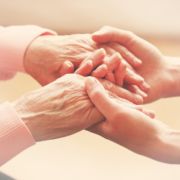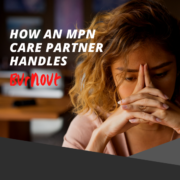Breaching Cultural Barriers in Cancer Caregiving
Humanity is diverse with no two persons being alike. We all face our own struggles, we all have our own ways of handling the hardships life throws at us. While we all may face similar obstacles, that doesn’t mean that each encounter is the same. Cancer comes in many forms with many faces and each person’s experience with it is incredibly unique.
Because the struggle with cancer is as diverse as the people who handle it, it’s imperative that healthcare providers and caregivers alike strive to understand the values and perspectives that shape the cancer patient’s approach to treatment. Among the most important aspects of this is in learning to breach the cultural barriers involved in cancer caregiving.
The Significance of Transcultural Nursing
Culture plays a powerful role in nearly every aspect of human life. It shapes what we do and it informs how we see others, how we see ourselves, and how we see our world. Culture also plays a pivotal role in defining how we understand and respond to illness.
For this reason, the effort to understand a patient’s culture is essential in providing high-quality care. This is where transcultural nursing comes in, particularly when it comes to caring for marginalized and traditionally underrepresented patient populations, such as low-income patients who live in remote areas.
At the heart of transcultural nursing is the effort to understand how a patient’s culture has influenced their health practices. Transcultural nurses leverage this understanding to devise personalized treatment plans that not only serve the patient’s health needs, but that also respect and align with their personal values and beliefs.
Such efforts are especially critical in cancer care, when recommended courses of treatment may sometimes clash with the patient’s wishes. All too often, indeed, healthcare providers may unwittingly dismiss, disparage, or disrespect a patient’s worldview and in the process undermine their right to bodily autonomy simply because the patient’s perspective does not line up with the practitioner’s view of “the science.”
A transcultural approach to patient care, though, can go far in making the exam room a “judgment-free” zone. If we want patients to be truly empowered, if we want them to enjoy and to exercise the self-determination that is their right, then they must first understand that clinicians will respect their beliefs without judgment, even if they do not share them.
Cultivating a “judgment-free” environment in the healthcare system is often the first, most difficult, and most important step in the process of shared decision-making, a process in which the patient’s self-defined goals, needs, and values carry as much, if not more, weight than the clinical data.
End of Life Care
Though hundreds of thousands of people around the world are winning their fight against cancer every day, the reality remains that, for some, victory over cancer will not mean survival. It will, rather, be defined not only by how the patient chooses to fight but also by how they choose to withdraw from it.
And this, too, is a decision that is often deeply imbricated in the patient’s cultural perspectives on illness, death, and dying.
If the patient is a person of faith, for instance, then they may be unwilling to undergo invasive surgeries or grueling treatments to prolong their lives. Healthcare providers and caregivers must endeavor to understand patients’ views of their own mortality and how these shape the patient’s choices regarding treatment.
Considering the Caregiver
As important as it is for care providers to understand the patient’s culture, it is equally important for caregivers to carefully reflect on their own values, perspectives, and beliefs, as these can and do strongly influence patient care practices, even at the subconscious level.
For instance, cultural values regarding quality-of-life issues may compel healthcare teams and informal caregivers alike to unconsciously scale back in their efforts with those patients whom they believe are enduring a “life not worth living.” These cultural perspectives also often obfuscate the fact that quality of life assessments are highly subjective and that these may easily conflict with the patient’s and family’s perspectives on what makes life worth living.
In the case of cancer care, for instance, patients and families may be willing to pursue a litany of experimental treatments, treatments that may seem both outrageous and futile to healthcare providers, who may feel that the patient has long since exceeded the subjective threshold for the “intolerable” quality of life.
In such cases, a caregiver who does not understand the personal and cultural factors informing quality of life perspectives is unlikely to be able to build the kind of trusting, respectful, and supportive relationships that patients need from their healthcare team.
The Takeaway
In many ways, culture defines who we are, what we do, and what we believe. It also strongly shapes our views about and responses to potentially life-threatening illnesses, such as cancer. For that reason, it is incumbent on caregivers to break through the cultural barriers separating them from their patients. Only then will patients enjoy the respectful, empathetic care they deserve.
Miles is an independent writer with a background in business and passion for tech, health, news, and simply helping people live happy and fulfilled lives. He has lived and traveled all over the United States and continues to expand his awareness and experiences. When he is not writing, he is most likely mountain biking or kicking back with a cup of tea.










